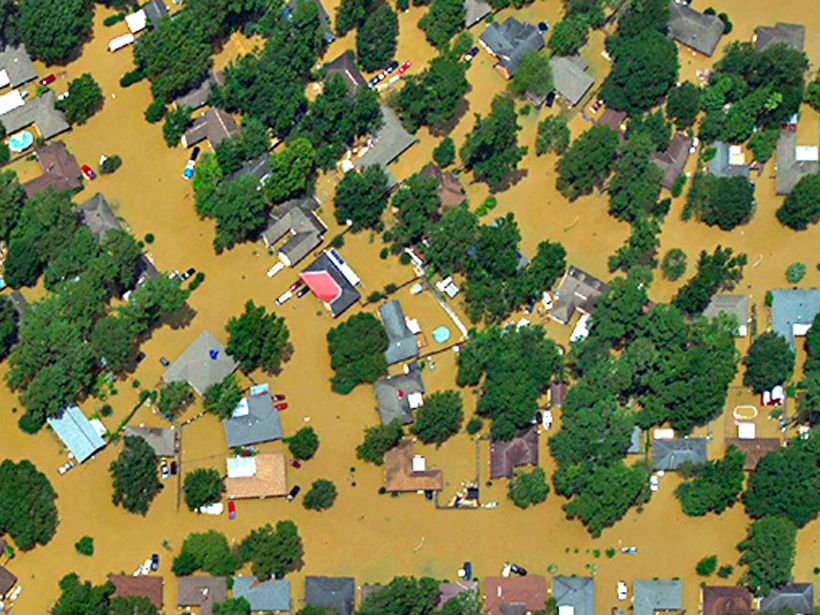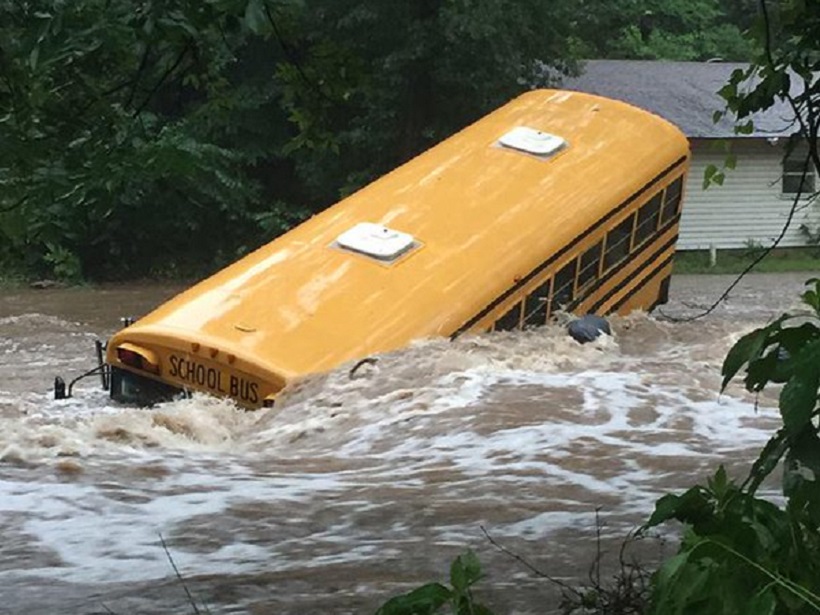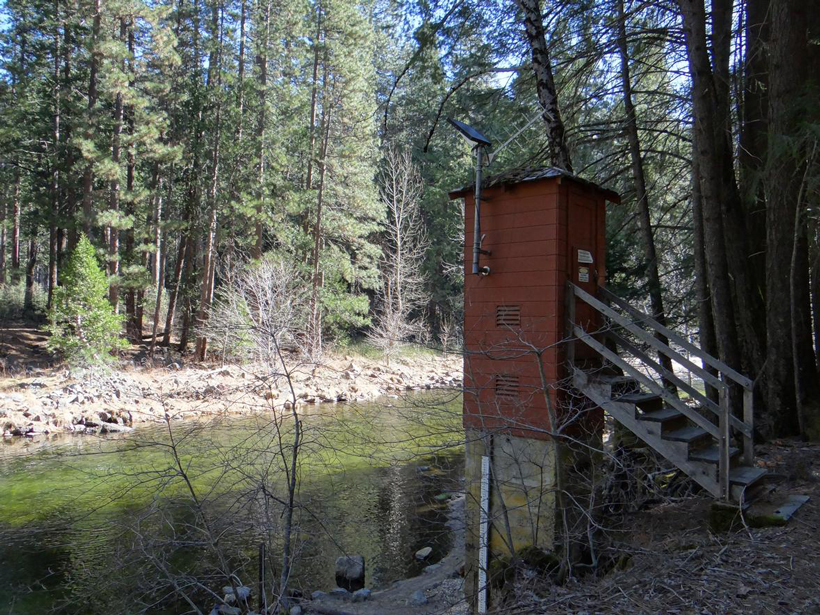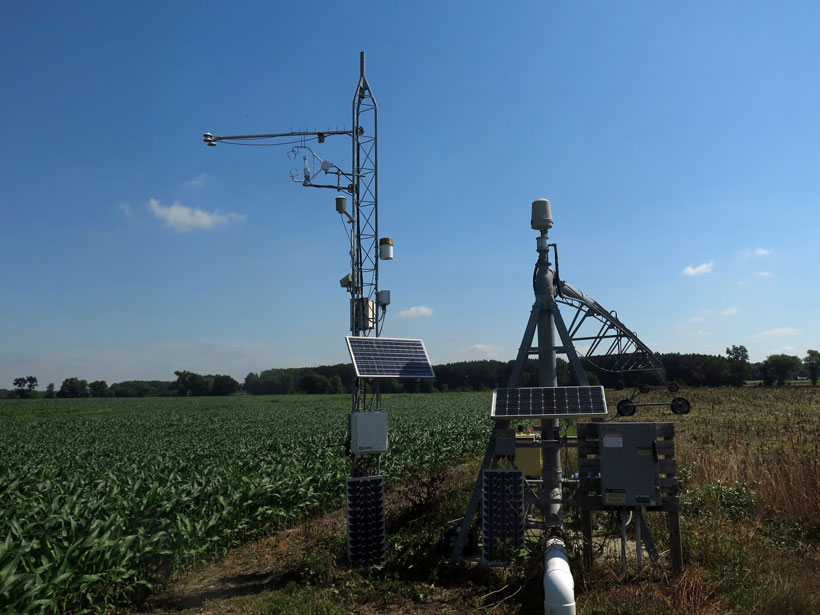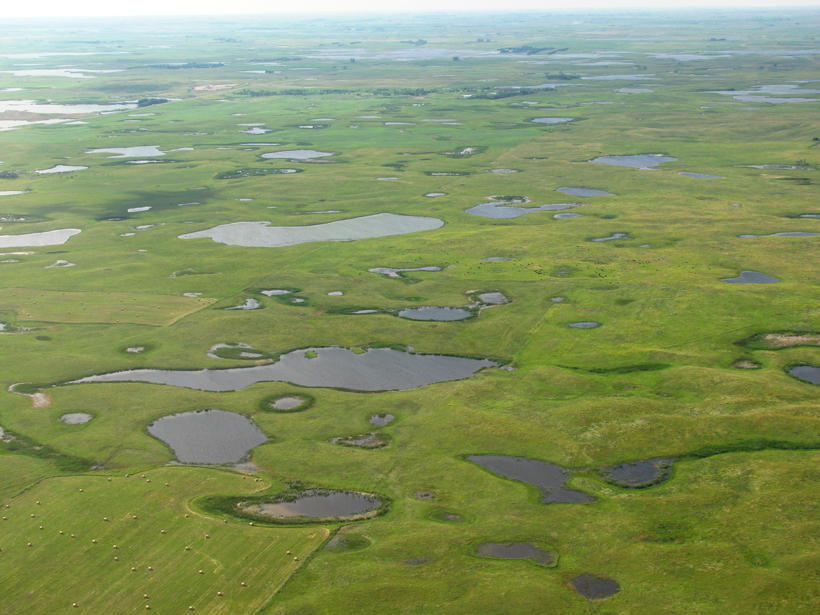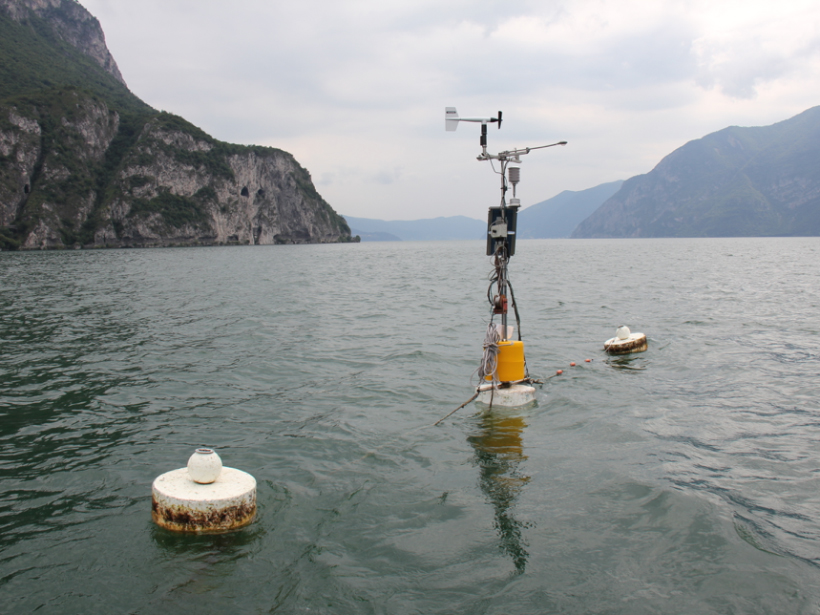The first application of aboveground neutron sensing to evaluate alpine snowpacks indicates that this method can reliably detect average snow depth and water content across intermediate distances.
Water Resources Research
Deciphering Deluges
New modeling approach reexamines two key assumptions about flooding.
In Pursuit of Flash Flood Data
How remote sensing of streams provides valuable data for the characterization, prediction, and warning of impending flash floods.
Improving Water Resources Management from the Ground Up
The key to sustainable water resources management isn’t satellite technology yet—it’s a new spin on time-tested rain and stream gauges.
Blending Satellite Data to Monitor Agricultural Water Use
A new technique that merges data gathered by multiple satellites can be used to monitor agricultural water use and improve water quality assessments around the globe.
A New Model for River Meanders
A river’s twists and turns are shaped by its past flood events.
Follow Earthworm Tracks to Better Simulate Water Flow in Soils
Incorporating paths carved by the critters and by tree roots helps scientists align simulations of tropical soils more closely with real-world data.
Small Wetlands Retain Lion’s Share of Nutrients
Still-water ecosystems are key to combating explosive algae growth.
Changes in Groundwater Flow Affect Nitrogen Cycling in Streams
Overpumping and other activities that affect groundwater levels could combine with increased nitrogen runoff to amplify threats to human and environmental health.
How Does Wind Push Water?
A new 3-D model shows how wind affects hydrodynamic mixing in a northern Italian lake.


